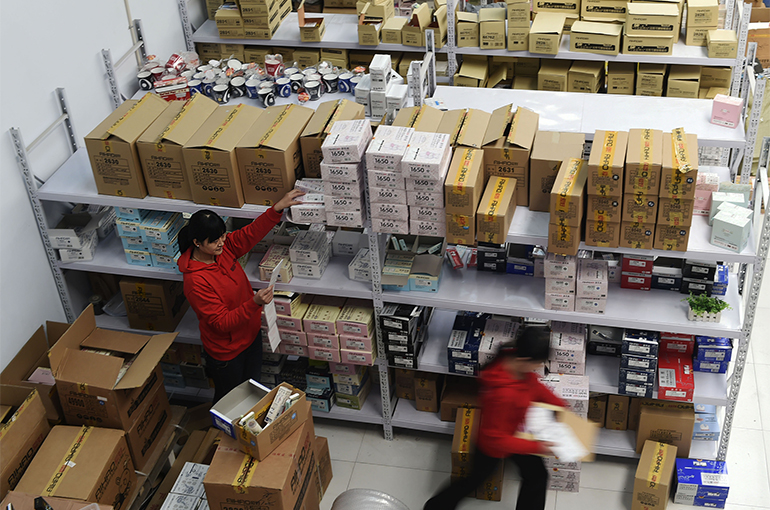 Trump’s Ending of De Minimis Tariff Exemption to Snare Over One Billion China Parcels
Trump’s Ending of De Minimis Tariff Exemption to Snare Over One Billion China Parcels(Yicai) Feb. 5 -- US President Donald Trump’s elimination of the de minimis tariff exemption for goods valued under USD800 is expected to impact more than one billion low-value items shipped directly to individual US consumers from China.
The number of low-price goods coming into the United States through the de minimis channel soared nearly 10-fold to 1.36 billion last year from about 139 million in 2015, according to data from the US Customs and Border Protection agency.
The executive order that Trump signed on Feb. 1 ending the exemption came into effect yesterday.
The exemption benefited Chinese e-commerce platforms such as Pinduoduo’s Temu, Shein, and Alibaba Group Holding’s AliExpress, which sell low-priced clothes, household products, and small electronic devices to American consumers.
Temu denied that its fast growth in the US depends on the exemption, and Shein said it gave import compliance the highest priority and supports the US’ efforts to reform the de minimis rule.
Meanwhile, the two Chinese fast-fashion giants are exploring other strategies. Since last year, Temu has been attracting Chinese sellers with inventory in US warehouses to join its platform, enabling goods to be shipped to buyers from within the country. Shein has opened distribution and supply chain centers in the US.
US retailers such as Amazon and Walmart have also imported products using the de minimis channel. The US International Trade Commission previously warned that abolishing the exemption would cost American consumers billions of US dollars.
Amazon launched its budget retail platform Haul last year. With Haul, third-party sellers can directly ship products from China to US customers. All the products available on Haul are priced at or below USD20.
Editor: Futura Costaglione